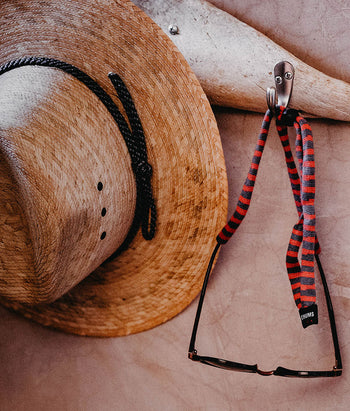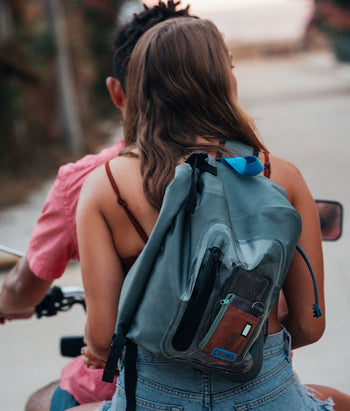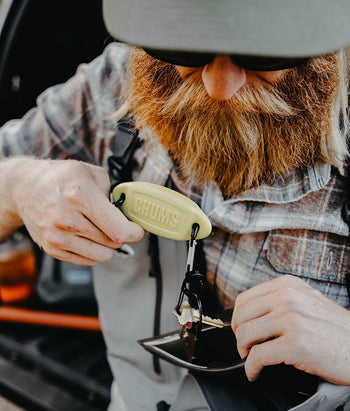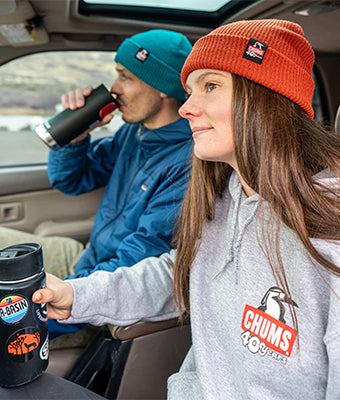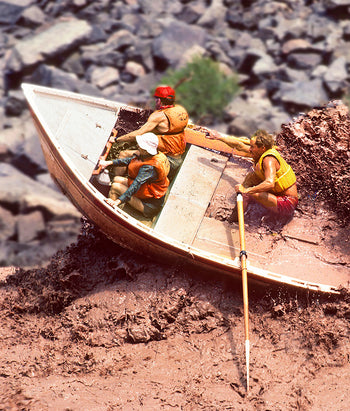Stomping Grounds: Jean-Marie Bousquet
WOOD RIVER VALLEY, IDAHO
WELCOME TO STOMPING GROUNDS, A BLOG SERIES WHERE WE FOLLOW OUR AMBASSADORS BACK TO THEIR HOME TURF TO FIND OUT WHAT MAKES IT UNIQUE, AND HOW IT INFLUENCES THE WAY THEY PLAY IN THE OUTDOORS.
IN THIS EPISODE, WE SIT DOWN WITH PROFESSIONAL ANGLER AND CONSERVATIONIST, JEAN-MARIE BOUSQUET TO FIND OUT ABOUT THE NOMADIC LIFESTYLE THAT EVENTUALLY SETTLED HER IN THE WOOD RIVER VALLEY, HER PASSION FOR PROTECTING FISH HABITATS AND HOW IT INFLUENCES THE FUTURE OF FLY FISHING.
What are your first memories of the Wood River Valley and the Big Wood River specifically?
It was my first time in Idaho, and there was an unreal caddis hatch—and I thought, this is it—this is what it's supposed to be like. I really got to hone my fishing skills around the valley. I didn't have a car for a period of time when I first moved here, and the Big Wood was a five-minute walk from my house—I ended up fishing it often because of its accessibility.
How would you describe the Big Wood River to someone who’s never been here and how does it compare to the other places you've fished around the country?
I'd describe the Big Wood as dynamic; it's in a constant state of flux, and to me, in places where it hasn’t been overdeveloped, embodies that classic feeling of western trout fishing. You know — the wind blowing just right, light sliding down canyon walls, kingfishers chirping about. That poetic and kind of romanticized story of western trout fishing. I’ve spent a lot of time on the move and, in doing so, have fished a variety of rivers. I think I’ve reached a place where I’m not necessarily chasing “the best” fishing anymore. I find myself more and more drawn to wanting experiences and connection with the wild, the natural state of things, and I'd like to see the Big Wood River move in that direction as a natural and wild watershed.

Can you summarize what Project Big Wood is? How did you get involved, and what sort of work do you do for them?
Project Big Wood is a local nonprofit shaping the future resilience of the Big Wood River. We look at restoration as the big picture, and within that, we focus on data, education, advocacy, and earthworks. I started helping out on the side and now have a versatile role that touches many different parts of the org—marketing, development, operations—you name it. We’re a small team, and we’re all in it because we care deeply about the future of the river, and we're as passionate about the work as we are about fishing and that's saying a lot!
Why is conserving the Big Wood so important to you and this area?
When I first moved here, the Big Wood didn’t have the best reputation. It had a bit of a Cinderella vibe, if you know what I mean. There wasn’t a lot of love around it—not compared to other rivers with lots of community pride. I've been able to see a shift in that lately, to see people grow more connected to it, beyond its recreational value, shoot, the Big Wood is foundational—it recharges our drinking water, irrigates local farms, supports wildlife, and shapes the identity of this valley.
How is habitat conservation important for the future of fly fishing?
Without it, we don’t have fly fishing. Plain and simple.

What Chums products do you consider to be essential to your kit as an angler? Which are your favorites and why?
The Original eyewear retainers are a classic for a reason. I’ve lost enough sunglasses to know better by now. And the lens-cleaning Pouch is crucial —smudgy glasses are the worst. The Downstream 4L Hip Pack helps me pare my kit down to the essentials and keeps everything dry. I’m a minimalist at heart, so I like getting out there with just what I need and nothing extra. Good gear makes a big difference. Chums makes the kind of stuff you don’t realize you need until you're out there fumbling with fogged-up glasses or lost your sunglasses jumping in the swimming hole.

What is it about fly fishing that keeps you coming back?
There are so many things, but what comes to mind now is simply the opportunity to connect with the natural world and the anticipation of connection with a wild creature as well.
What’s your one piece of advice or pearl of wisdom for someone just getting started on their fly fishing journey?
I have two thoughts for this. The first is to remember that we should all pay our dues and enjoy the process of going out and learning. There will be, and in my opinion, should be, moments of struggle, and then at some point, the stars always align; everything comes together. That's what makes it so much fun; don't be too eager to skip over the process of just putting in the time to figure it out.
Lastly and maybe most importantly is to ask yourself every time you go fishing—Am I being a steward of my environment? Even when know one is watching.


